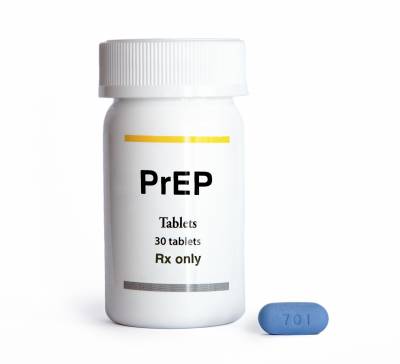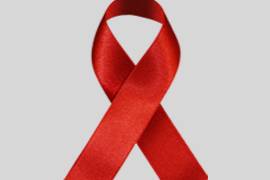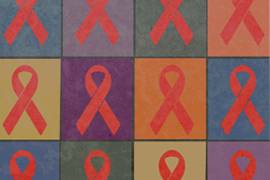
Rethinking Safer Sex: PrEP
Blog Search
What is PrEP?
In 2012, the FDA approved the use of Truvada, an antiretroviral medication normally used to treat HIV, as pre-exposure prophylaxis (PrEP) for HIV-negative people. It enables HIV-negative individuals to take control of their own sexual health, increasing bodily autonomy and reinforcing safer sex as a shared responsibility.
At least 1.2 million adults in the United States—including nearly a quarter of HIV-negative, adult gay and bisexual men—are good candidates for PrEP. This daily pill has been shown to be nearly 100% effective, when taken consistently, at preventing the acquisition of HIV.
Who could benefit?
The U.S. has made great strides in fighting the HIV epidemic. However, even as diagnoses decrease among certain populations, health inequities continue to worsen. Indeed, over the last ten years, HIV diagnoses among young Black and Latino gay and bisexual men have increased by 87%. Though these rates are now stabilizing, Black communities continue to face the highest burdens of HIV among racial and ethnic groups, and transgender women—especially trans women of color—are at elevated risk for acquiring HIV.
The Centers for Disease Control recommended Truvada as PrEP in 2014 for populations at substantial risk of contracting HIV. PrEP is not just for men who have sex with men, but is likely appropriate for any person at substantial risk of contracting HIV—including men and women in mixed HIV-status couples, sex workers, and certain people who use intravenous drugs.
What are some challenges?
Although PrEP is a game changer, uptake has been slow for a variety of reasons. Only an estimated 22,000 people in the United States were utilizing PrEP at the start of 2015. A third of U.S. primary care doctors have never heard of PrEP, let alone prescribe it.
Additionally, there is a common perception that PrEP is unaffordable for people without insurance. While the retail price of PrEP is high, payment assistance programs help cover the cost for both insured and uninsured individuals. Navigating these can be time intensive, and there may be gaps in coverage. However, community-based organizations provide assistance through the use of “PrEP Coordinators,” and free testing sites and state assistance programs—like New York’s PrEP Assistance Program—may cover the cost of medical visits and labs. For many, PrEP is much more affordable than expected.
And PrEP has been stigmatized—labeled as a “party drug,” with users sometimes called “Truvada Whores.” Some argue PrEP will encourage risky behavior—decreasing condom use and increasing STIs, but these arguments miss the point.
First, both the CDC and World Health Organization recommend PrEP be used in conjunction with condoms—so no one is being told to stop using condoms. But we also know condom use is already inconsistent at best, and for many not using condoms can be a point of “guilt and shame.”
Stigmatizing one (newer) method of protection because individuals choose not to use another is counterproductive. Instead, we should view PrEP as an opportunity to connect individuals to comprehensive sexual health care—so they can get tested for STIs regularly and have frank conversations with providers about strategies that work for them as individuals.
Lambda Legal is working to end the HIV epidemic in the U.S. by increasing knowledge of and access to all of the available prevention tools. This now includes PrEP. The decision as to whether to take PrEP is deeply personal. And Lambda Legal is committed to ensuring everyone at substantial risk of contracting HIV has the opportunity to make that choice for themselves.
If you or someone you know is trying to get on PrEP, and a healthcare provider refuses to prescribe it or insurance won’t cover it, contact Lambda Legal’s Help Desk at 1-866-542-8336 or www.lambdalegal.org/help.




